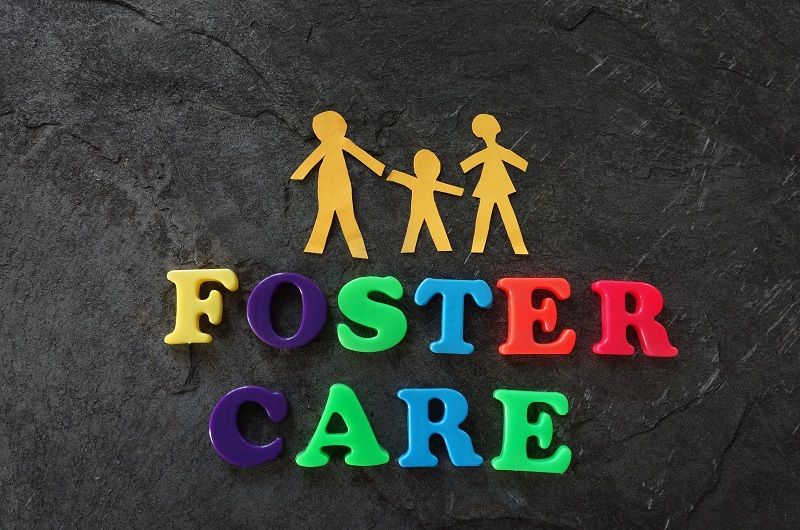by Professor John Spiers
Dr. John Spiers is a professor in the Business School, The University of Glamorgan, UK, a Senior Research Fellow at The Institute of Economic Affairs, and a Health Policy Adviser at the Social Market Foundation, both in London. He recently spent a month in our state studying the Oregon Health Plan. This paper is adapted from a talk Dr. Spiers gave on March 18, 1999 for Cascade Policy Institute, where he has been named an adjunct scholar.
1. Introduction:
The Oregon Plan, well intentioned as it is, mirrors the overall problems of American health care. The way this is structured prevents the working and the non-working American, the better off and the poor, from controlling their own lives and building better personal care.
I think this is the diametric opposite of a realistic, fruitful and dynamic solution. It will not ease the tensions, stresses and complexities of US health care. The way forward – politically difficult quite clearly, but still the way forward – is to engage consumers directly with cost and value.
Let me get further out onto thin-ice, by starting with an overview of how US health care looks to an outsider. I am, of course, effectively from Mars. You must be forgiving. But I need to try to do this to lead into the British alternative and why it doesn’t work either.
So let me look at the following issues:
1. What the problems of US health care look like to an outsider.
2. What common assumptions can we see between the British National Health Service of socialized medicine, and the Oregon Health Plan.
3. What has happened in the British Health system which should be a warning to the wider US structure of health care. This, by the by, is so bewilderingly complex I would “go postal” if I had to try to make it work as it is.
4. Then, some thoughts on what might be solutions for us both.
2. US health care:
The objective is surely a coherent system in which everyone is engaged in cost-conscious choices – and in which everyone is covered under the same broad framework, spending their own money or a tax credit if poor.
The way US health care is structured denies this self-responsibility. The OHP is a symptom of this problem from the wider US health care system where everyone passes the bill to someone else if they can, and where most patients have no idea of true costs.
Yet cost-conscious choice is critical to any system which hopes to encourage better life-styles, better health, and better health-care itself. It is fundamental to cost-control, and to matching expectations with realities. The proper functioning of price, the awareness of true cost, and getting away from the problem of the third-party payer seems first base.
In the US the government is the principal consumer of health services. Federal subsidy distorts everything. Huge sums are spent, but some 37 million are uninsured, even if for short periods. In contradiction to the American dream, the successfully employed, the working poor, and the genuinely impoverished all get care on different routes, with over-use of emergency rooms too. There is no coherence.
In fact, both the US and the British health systems lack alignment between individual demand, cost, self-responsibility and preventive care. Perverse incentives drive up costs in each system. In addition, you have high litigation costs, high malpractice insurance costs, and much defensive medicine. Where there should be simplicity, there is bewildering complexity. Where there should be caution, there is insistent un-priced demand. Where there should be careful scrutiny of quality, there is judgment by volume. And the true objectives of a healthier society are not met.
These difficulties surely arise from insufficient competition, and the lack of consumer responsibility to consume knowingly, with incentives to live wisely, to consume shrewdly, and to save.
You know that US health care costs rose by 6.1% nationally in 1998, whilst the general CPI was below 2%. Some forecasts suggest an 8-10% increase is coming in the next two years. Net average medical costs in 1998 were $4,500 per employee – 13% of average payroll for an employee purchaser. Yet people seem to think that a co-pay of $5 or $10 dollars covers true costs.
Senator Phil Gramm, I think it was, once said: “If every time I spent a dollar at the supermarket I only had to pay 21 cents, I would eat a lot better and so would my dog.”
The flexible, agile, informing market is not relied upon. Instead, health care – including the OHP – is a political fix. And now Governor Kitzhaber proposes an $80 million cut in the OHP. Political fixes in health care come unfixed fast.
However, we know that genuine competitive markets can lift all boats. They have changed life and standards in unprecedented ways. Yet we still omit health care and education too from their influences.
3. Assumptions shared by Britain’s National Health Service and the Oregon Health Plan :
I do not think the British National Health Service of socialized medicine is the answer, for us or you.
There are many direct parallels between socialized medicine in Britain and the OHP.
Both assume that:
* someone else can know a person’s best interests better than they can know them themselves.
* that planners can capture this data, which shifts constantly.
* that they can aggregate guesses about individual preferences – the NHS and the OHP call these “needs”, which they say experts can assess, rather than “wants” which only individuals can fathom and express.
Both suggest that in public policy consultations officials and doctors can understand and balance these alternative preferences; that they can judge marginal utility for other people; that they can make investment decisions which will be right for other people in the unknown future. However, in markets this data not only has to be collected, but constantly renewed.
Both urge that medicine, too, is objective and scientific and that experts can know what will be the preferred outcome for the individual.
Governments like the word “mandate”. Well, only about 30% of medical interventions are mandated effective by scientific trial. Much of health care is life-style choice, not public goods. And the individual patient is the real expert on their own life and how they can be best helped to cope with illness.
In both the NHS and the OHP the poor necessarily compete with others like themselves for a limited budget – a beggar-my-neighbor system.
The NHS, and now the OHP, are said to be a system of one size fits all. In fact, one size fits nobody. For health care concerns uniquely personal, separable, intimate benefits. They must be tailored, cost-consciously, to the individual. Cost-conscious choice is essential. Based on self-knowledge and good information. Based on what Hayek spoke of as “learning to choose” – the characteristic of adult life. Based on taking responsibility for ourselves. It may be that we only truly know ourselves when we have to make tough choices. But the NHS and the OHP offer politics as a substitute for economics in making self-responsible, cost-conscious health care choices.
Necessarily such value judgments are made case by case, between patients competing for insufficient resources. Which patients are the more “deserving”, and on what basis? Who is to decide who shall live and who shall die? Who will make the inevitable trade-offs in health care expenditure, and between health care and other expenditures?
The NHS and the OHP struggle with how to make these relative investment decisions between one patient, one service and another. But it is not possible objectively to establish what is optimal care for an individual in the abstract, what is appropriate, what counts as a good outcome, what is the right level of investment.
Instead, you surely need to bring not only the poor but also both the uninsured working poor and everyone else too into a properly functioning medical market-place. For the existing market-place needs major change. It shouldn’t be necessary for the structure to go smash before that happens.
Britain has a virtual public sector monopoly in health care. This demonstrates the many deficits and denials which state-run, state-financed, state-provided medicine inevitably delivers. My hope back home is that we shall eventually see a regime which releases competition, which lifts all boats. Competition has achieved unheard-of, undreamed-of gains in productivity, quality, opportunity and choice in all our lives, including those at the bottom. But it is suppressed in health-care here and in the UK. To get it working in Britain we need tax cuts, tax credits for health-care, and for people to come willingly together in organizations of co-operative, non-political civil societies of mutual-aid to buy care. The British version of the Medical Savings Account, but buying directly as a mutual co-operative, not buying via an insurance company.
Britain’s NHS is the OHP writ large. I believe this is known here as a “knock-off”. It reflects what you can expect when you ration by financial targets and by state administration. In the UK and in the US the poor are still in the position they always were – take what you can get, and you still can’t get much. They get listed, and get some choices. They can also get emergency services, but not necessarily a regular service from a physician.
Milton Friedman, the US nobel prize economist, inimitably offered the true choice: when he wrote that “if economic power is joined to political power, concentration seems almost inevitable. On the other hand, if economic power is kept in separate hands from political power, it can serve as a check and a counter to political power.”
This is the key to change.
4. The British National Health Service:
How about the socialized medical system of the UK as a model? Governor Kitzhaber has no need to look into the crystal ball as he considers his budgets. He can look in the written book. Look at 51 years of the British NHS – all 51 annual volumes. This is the living proof of what happens when there is a state-imposed alternative to the positive force of competition in health-care market places.
However, some people still will not see. The novelist John Wyndham once said: “There are times when one fails to see why God thought it necessary to devise the ostrich.”
Look at the NHS itself. The deficits and denials of the British state monopoly system are considerable. It has remained outside the modernization of the modern, electronic, competitive, open economy. Instead, it asks people to lower their expectations – although in every other industry people strive to seek willing customers and offer added value, innovation, and improvements in service.
The NHS offers – as does the OHP to the poor – the epic comfort of the system being there when you want it; but health care is uniquely concerned with intimate, personal, separable benefits. And these are often denied. In the NHS there are 1.5 million on the waiting list. Too often the sign on the door is “sold out”.
British consumers – drip-fed for 50 years on “free” health-care – are not price-conscious. They believe health-care is cheaper than it really is. So, too, do US consumers. They do not gauge the spend of a health dollar against any other opportunities. Demand inexorably rises.
In the UK demand is constrained by public policy. We spend 5.9% of GDP from tax funds and another 1.1% privately but with no tax incentives. In the UK only 7 million people have private medical insurance. Like the OHP, the NHS is devoid of the usual market tests which face other goods and services.
The British results are grim.
In 1948 the British government made the mistake of suppressing price – it thought that free supply was the answer to helping the poor. The better way would have been to beef up purchasing power, and let markets develop in response to demand.
The NHS was set up specifically to help the poor most, but they still have the worst morbidity and mortality. Instead, the system has favored those who know how to work systems. We have demonstrated, too, that you do not encourage changes in life-style or responsibility by offering free services.
In the UK, all health services are rationed by government. Mrs. Thatcher made changes on the supply-side, but feared the political price of demand-side change. There is the promise of services, but no right to them. There is no binding legal entitlement. No individual financial leverage. No competitive alternative. There are major shortages of staff; low morale; and a rising tide of patient complaints. Costs vary by a factor of six between hospitals for standard operations; there is serious concern about self-regulated medical practice and its quality; government necessarily suppresses information to curtail the demand for choice.
Modern drugs are routinely denied to patients: for example, only 15% who could benefit from Interferon-beta for MS receive it; there is uneven delivery of combination therapy for AIDS, of Aricept for Alzheimer’s and Metastvan for prostrate cancer. Doctors are told not to prescribe Aricept until the patient asks for it – so patients who have to be reminded who they are have to remember to ask for a drug by name.
In renal care we are 21st in Europe; only Bulgaria treats fewer patients per head. These are systematic, imposed failures which worsen the natural constraints of nature.
Cancer care is a particularly shocking concern. More than half of all patients do not see a cancer specialist. We have only 340 clinical oncologists; in the USA I think the figure is 20,000 for a population only five times bigger. Hardly surprisingly, UK survival rates are very poor.
The NHS emphasizes solidarity, as does the OHP. But it has effectively asked us all to join hands and cross the finishing line in the race of life joint last together.
All this results from three things:
1. Driving a system ideologically, by financial targets, on the basis of the visionary idea of “values”, which are political and paternalistic.
2. Delivery within an imposed near-monopoly.
3. No individual cost-conscious financial empowerment, which would encourage self-conscious, cost-conscious choice and savings.
The NHS deliberately disempowers the individual. It was intended to do so. Like the OHP, it was designed to satisfy “needs” rather than wants expressed in a market-place. Only experts, doctors and social scientists can know how to satisfy them, we are told. So the patient is not seen as a consumer, deciding what he wants and will pay for, but as a passive recipient of whatever the all-knowing powers on high decide that he ought to have. So consumer sovereignty would defeat the very purpose of a national, socialized health service. This is an ideologically-driven system, retained for political reasons by governments of all parties despite its results.
Consumers with a will to choose would necessarily undermine it, especially if they could remove their money if they were not satisfied with what was on offer. As in the OHP, the idea is that someone can know another patient’s needs better than they can know them themselves.
The NHS has failed in its own terms – it is neither free, nor equitable, not effective, nor efficient. It is, however, cheap – unless you happen to be one of the many who are denied service. Wal Mart wouldn’t last long selling such a product.
Public ignorance, too, is a necessary consequence of state monopoly – and the public are then told that decisions must be made for them because they are ignorant. The result of the NHS and the OHP must be rationed care, and more not less efficiency. Both are symptoms, not solutions. They under-line that government is guilty until proved innocent – a task of acquittal beyond all the lawyers acting together in this room.
Instead, the individual must be helped to have three kinds of control: over themselves, over providers, and over politicians who use false health-care solutions to buy votes.
The issue is how to use incentives to change the situation for the much better. I suggest that the answer is to empower the individual to ensure three things: good information, which can become self-knowledge for the individual, and then cash in hand to get the job done that the individual wants done – with the realization of what is possible and what is not possible for the dollar. This should exist for everyone – irrespective of employment situation. It can generate self-responsibility, cost-control, self-conscious and cost-conscious choice.
Sydney Webb once told a discussant that his arguments led to Sydney’s conclusions. If the proponents of the OHP want what they say they want they had best adopt competitive markets, which are the only way to do the job.
5. The solution – economic instruments:
P.J. O’Rourke wrote: “Money is preferable to politics. It is the difference between being free to be anybody you want and being free to vote for anybody you want.” And we know now that the ballot box does not secure personal, individual services like health benefits which are uniquely timely by their nature; politics offers on specific leverage, unlike shopping. Nor can politics register the vastly different preferences of individuals. You can, of course, change the government. This may not help. And by then the patient may be dead.
So consumers must be sensitized to true costs. Everyone must be part of this, if you want a cohesive society, a civil society, and services which are freed from political vote-buying. A huge overall cultural gain would be the world described by Virginia Postrel in her new book, The Future and its Enemies – the spontaneous development in a free society of new and unthought of opportunities, continuous adaptation, a productive and a living system. Rationing is necessary, of course, but by personal choice and by price. Neither the NHS nor the OHP – nor, indeed, the federal system for everyone else offers these potentials.
The only real test of every dollar spent that is worth having is the register of consumer wants when the individual knows the true cost, quality, price and likely outcomes. When they know the alternatives in other services and goods, and the opportunity costs. The key change is incentives so we can each manage our own lives for ourselves, with our own moral compass.
We know the kinds of economic instruments we want and which could work.. Medical Savings Accounts are a winner. Doctors could become agents of patients again, and insurance become a sensible buy again. The MSA could cover the uninsured, too. My hope back home is that we can see a regime like this which would release competition with tax cuts, risk-adjusted tax credits, and the prompt to mutual aid co-operative organizations buying care on behalf of their members, rather than via an insurance company.
The individual is the ultimate cost-container. Self-responsibility, too, is at the root of liberty in a free society. And as Enoch Powell, the British Conservative, once said, “there is no meaning in responsibility where there is no power…we cannot be responsible for what we cannot do.”
Appropriate federal tax treatment, and with guaranteed insurance renewal, would liberate this vital instrument of change. A portable, means-tested, voucher, risk adjusted, would bring in the poor. The individual would then pay for the coverage they want. Catastrophic cover would be included and the risk-pool maintained.
Of course, the Federal government, the insurance companies and politicians locally are in the way, as are the providers. However, as the genomic revolution comes on line, as the age of mass medicine passes, as the line between the person and the patient vanishes – with all the ethical difficulties that are already arising – we shall see renewed pressures for individual responsibility. The world wide web has already personalized the rationing dilemmas: we need to empower the individual to decide for themselves on the basis of this new knowledge of treatment and patient experience, and to gauge risk and take responsibility for their lives.
The MSA satisfies the prime demands. It empowers the individual. It offers incentives for cost-conscious behavior. It makes people think about choices. It encourages saving. It is an elegantly simple market-based solution. It could replace the failed model of employer-insurer. The savings could cumulate into long-term care plans, which would tackle another time-bomb. Everyone would know what to expect, in one coherent system.
US health care in the broadest view, the OHP and Britain’s NHS struggle with how to make relative investment decision between one patient and other. The players struggle, in increasing frustration, with how to control costs and benefit from positive incentives. But they cannot establish what is “optimal” care for an individual; “what is appropriate”: what counts as a good outcome; what is the right level of investment for each of us.
All this, of course, emphasizes appropriate access. However, it is very difficult to show a convincing link between access to medical care or even use of medical care and positive health outcomes. This is counter-intuitive, perhaps, but it seems to be the case. The well-known Rand Study in the 1970s showed that families with a $3,000 deductible (in today’s dollars) spent about 30% less on health care than families with first dollar coverage, and with no adverse effects on their health!
A study in 1980 by the National Center for Health Studies found a positive correlation between the number of physicians and death rates. Another study found mortality rates fell during physician strikes in Canada and Israel and Los Angeles. They returned to normal levels when the strike ended.
6. The Big Issues:
All this addresses fundamentally moral and philosophical issues. In health care, everything is ultimately rationed. The question is by whom and how. How we answer is the test of whether we are to live in a society of liberty, or one of coercion, hierarchy and command. Whether we are to live by our personal moral compass, or by the command of those who claim to know our interests better than we know them ourselves.
These are genuinely big questions. Perhaps the biggest of all. They reach beyond health care – for they concern who we are and who the state assumes us to be. They are about the fundamentals of human nature and social organization. They pose key questions about the sources of self-responsibility, of morality, and of our relations with the state and one another. They concern, too, the identity of this great nation. And you hardly need reminding that America was a moral project from the beginning.
It is surely a good way short of good enough to encourage competition in utilities, or government map-making, or privatized street-lighting in old Virginia towns but to leave health (and education) out of the reckoning. For thus omission undermines the credibility of the basis of the entire market society.
Nelson de Mille, the American novelist, once wrote that “It is dangerous to be right when the state is wrong.” But it is our responsibility to believe in the power of ideas, and to argue for them. As the British health care manager Leigh Richardson has said, the ultimate question is who decides who decides. If we believe in the power of ideas it is our responsibility to outline an alternative vision and to argue for it – as Cascade Policy Institute does on these issues.
With my ideas now public here I expect to be stopped by the emergency room police at the airport gates next time I come to the Pacific Northwest. I will have to come under an assumed name, on a Belgian passport, and they will probably give me a hysterectomy, above the line, as determined by experts as one of my “needs”. But I suppose it won’t work. Thank you for listening.











